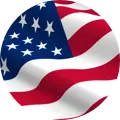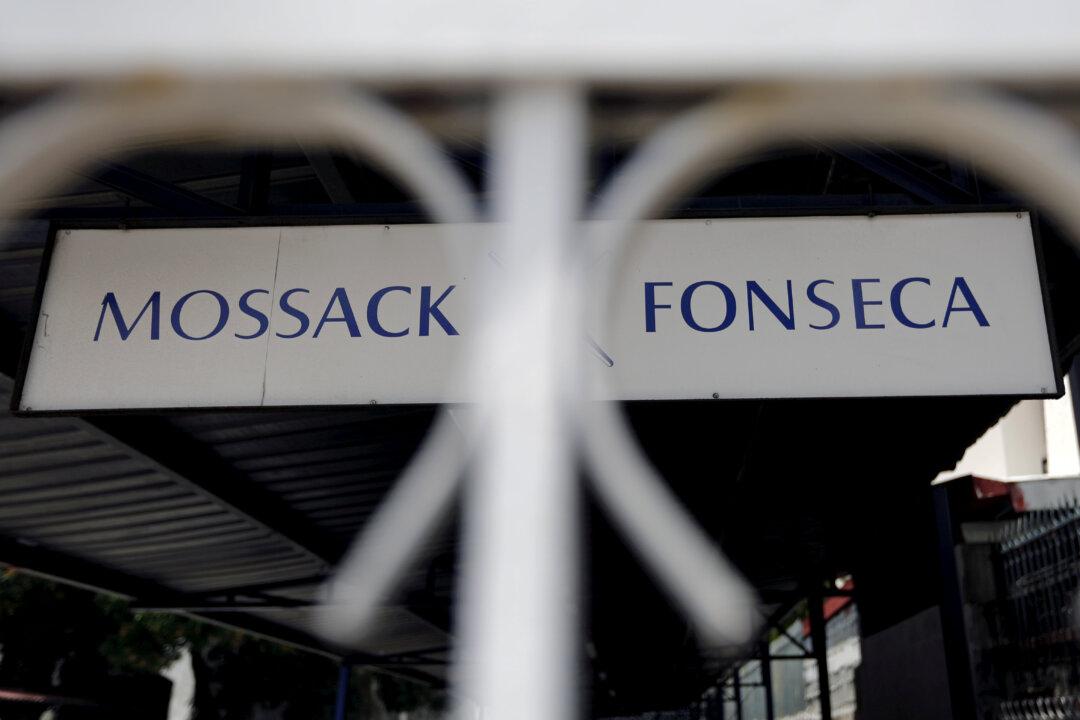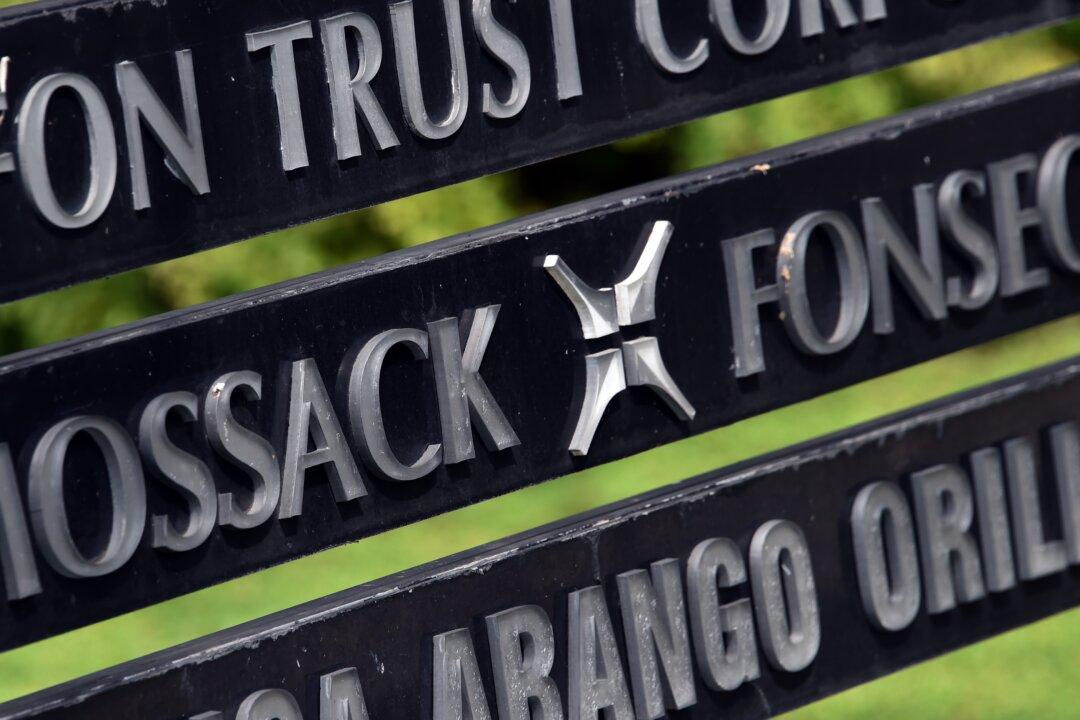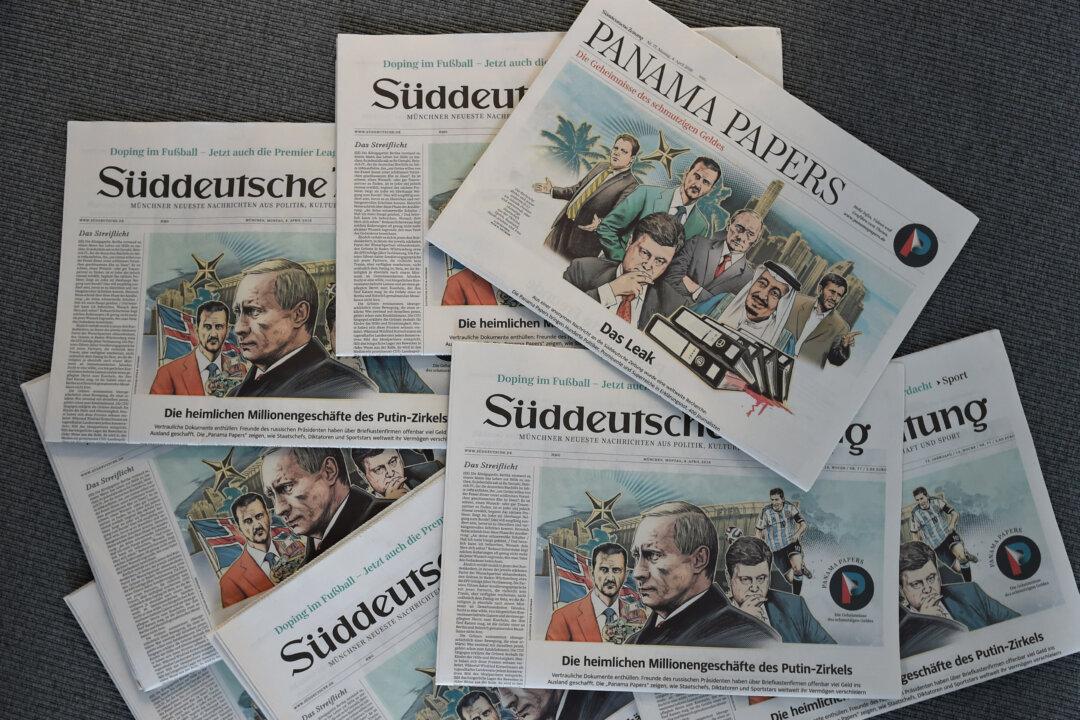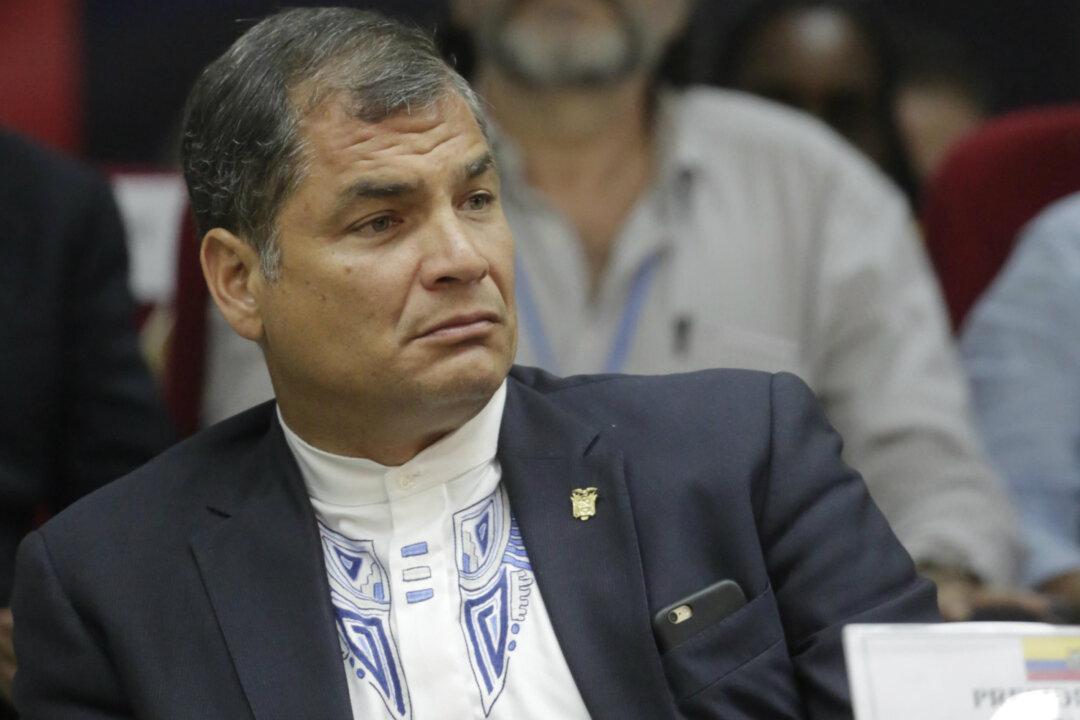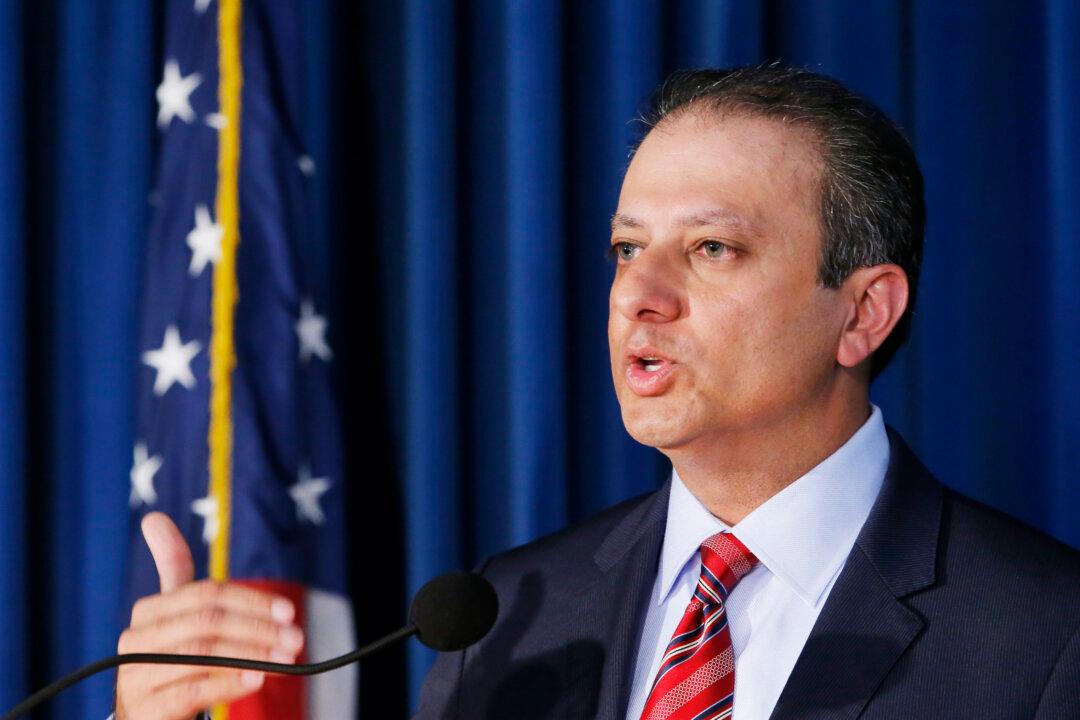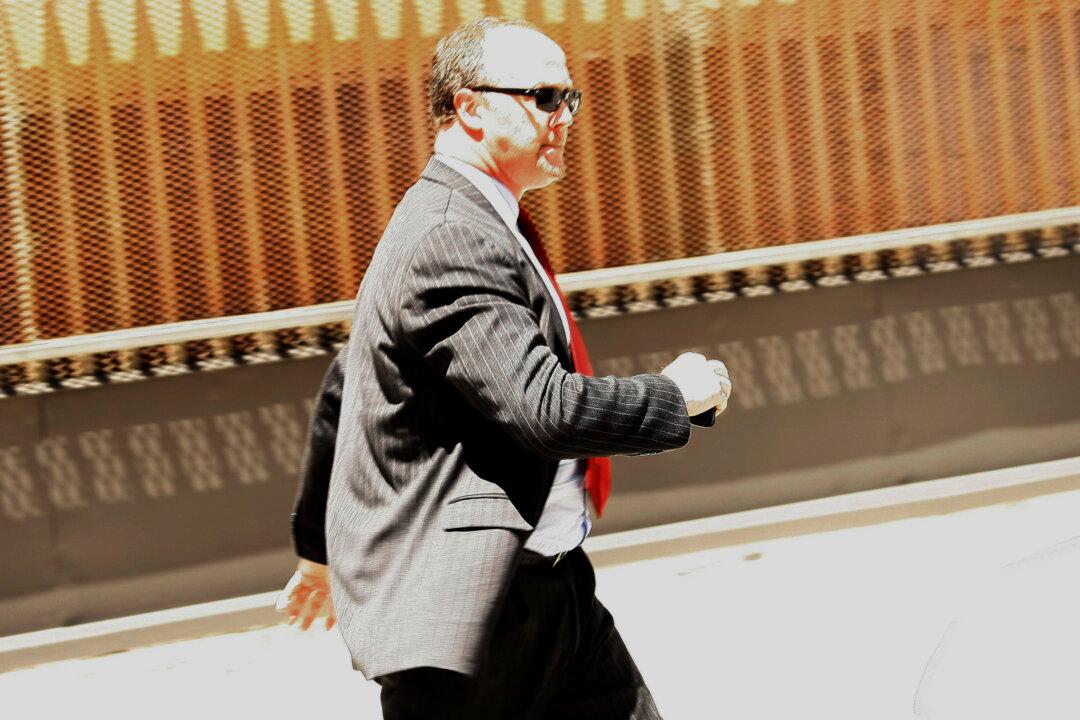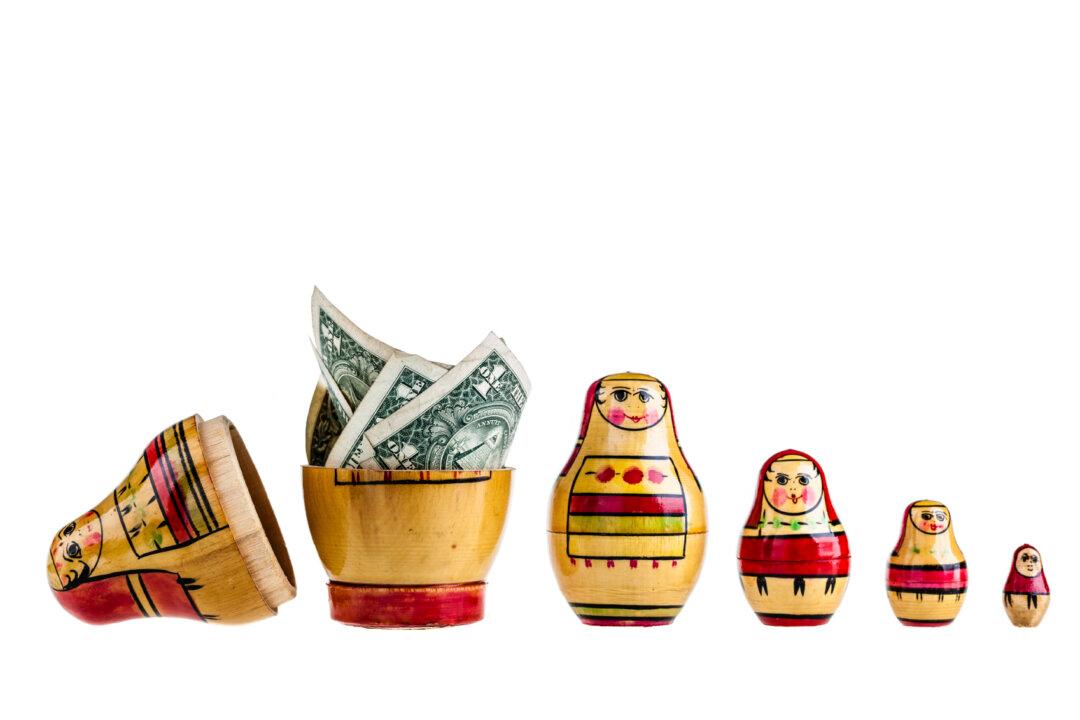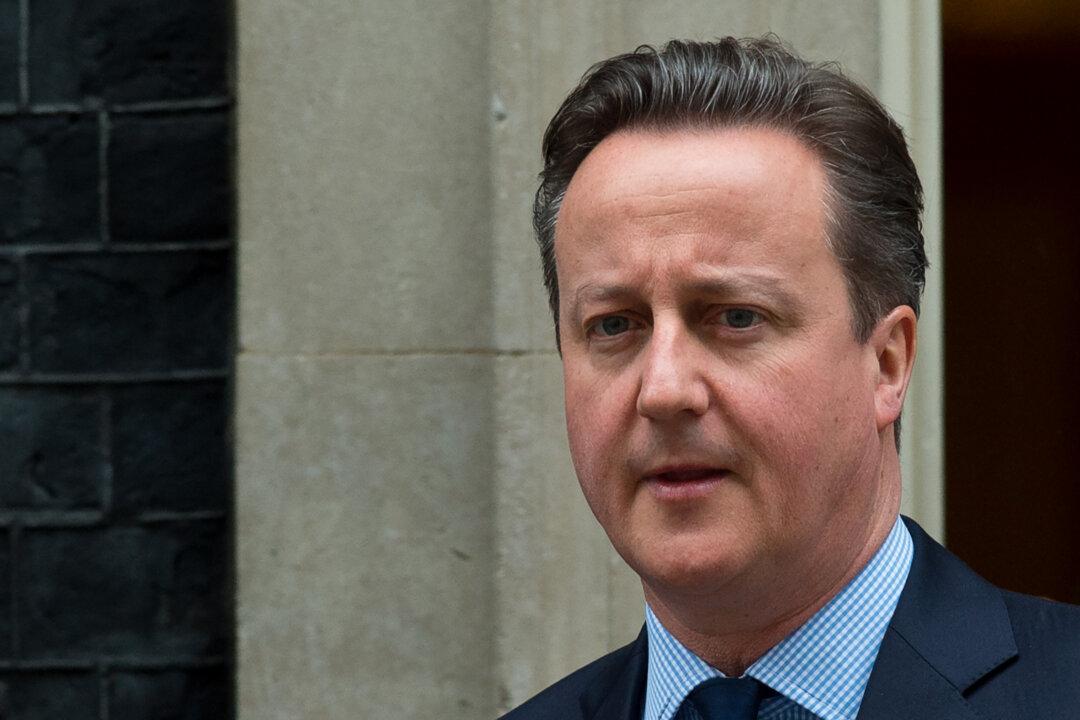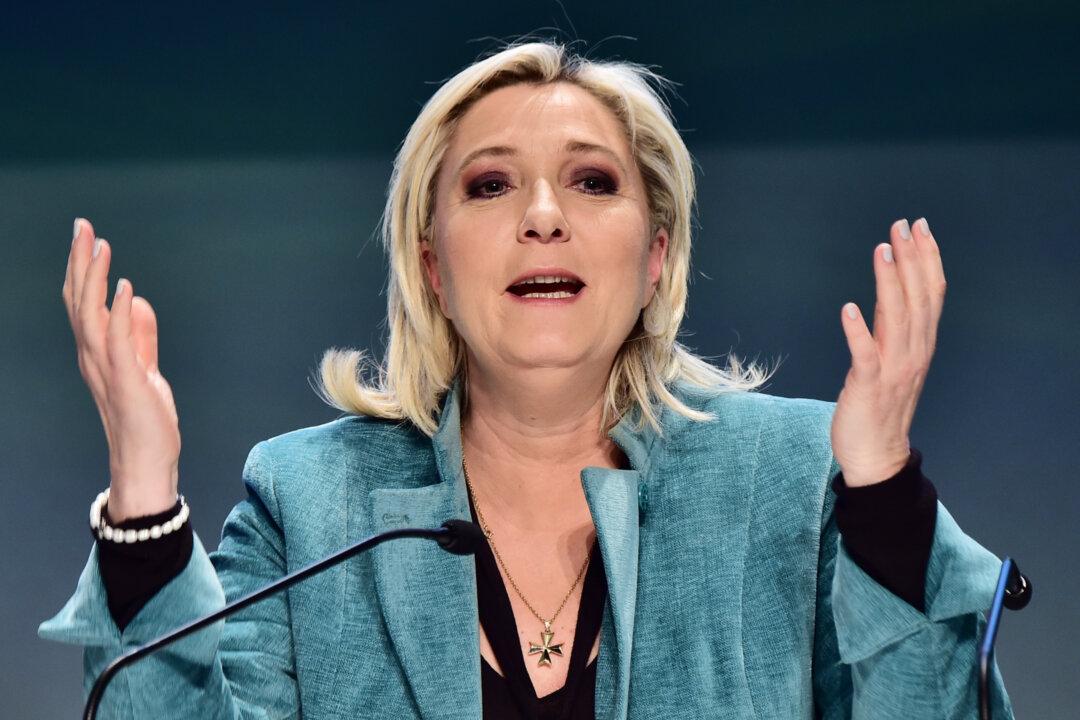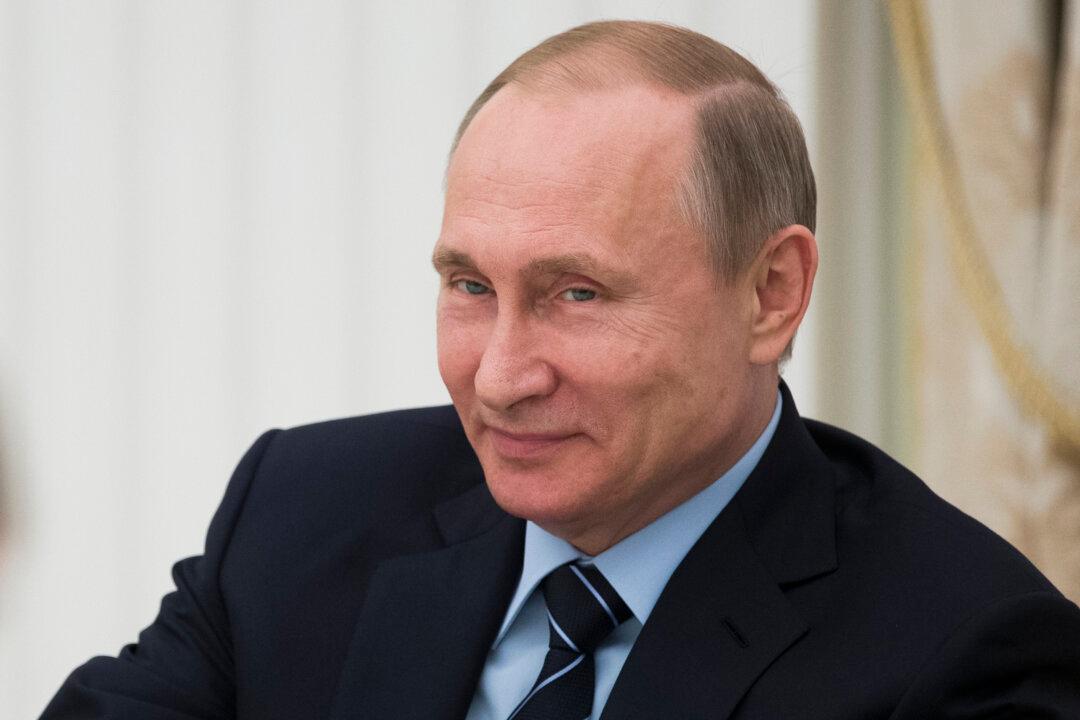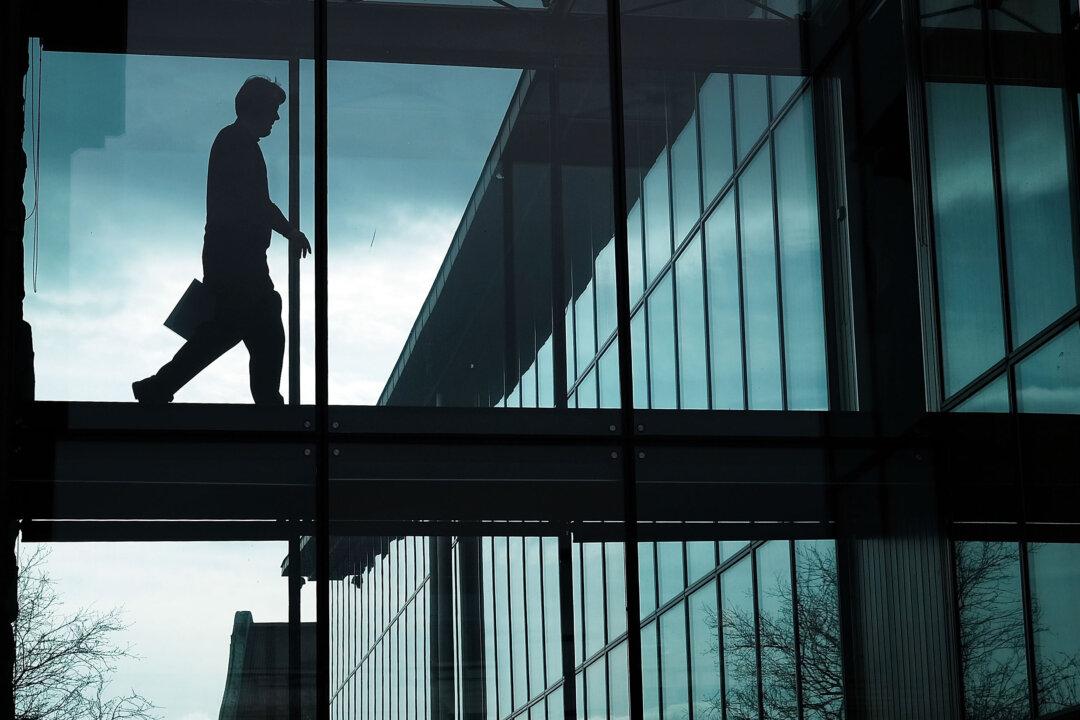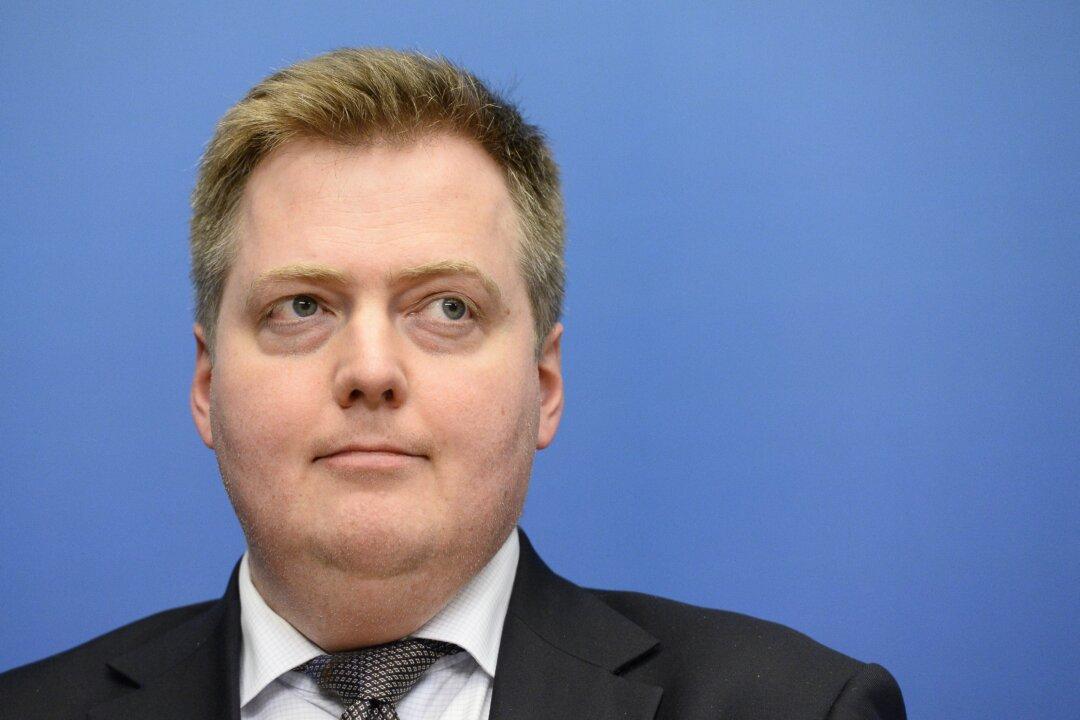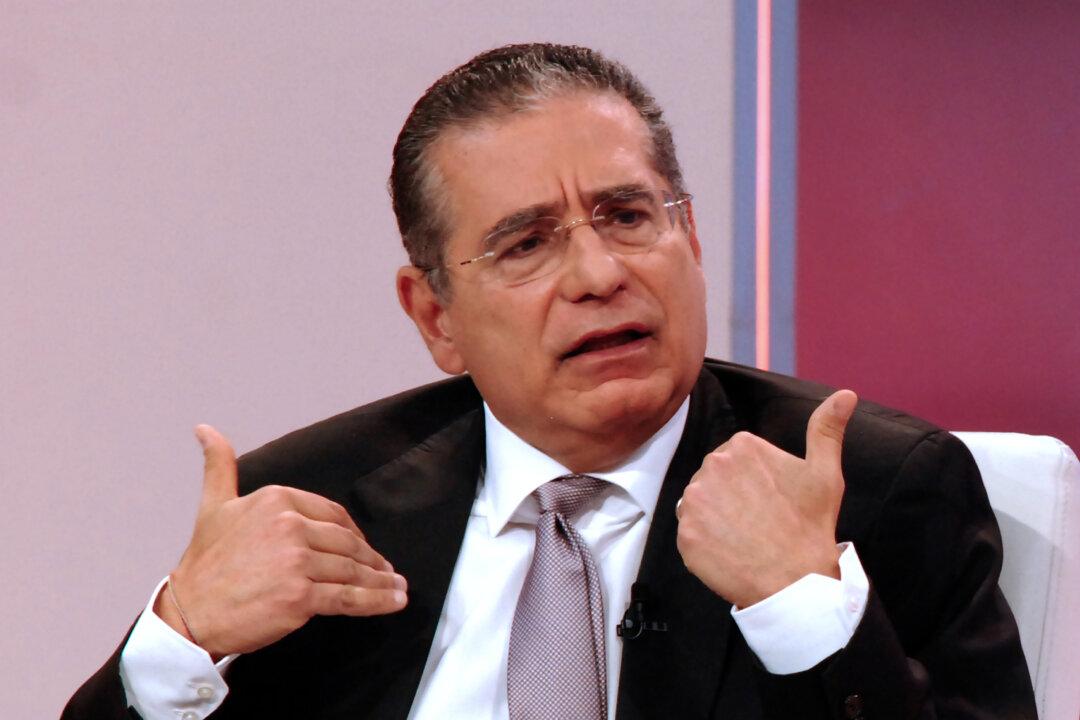Focus
Mossack Fonseca
LATEST
Are You in the Panama Papers? Huge Database Is Released to Public
People are now able to search for their names in the Panama Papers through a database provided by the International Consortium of Investigative Journalists on May 9.
|
President Obama Calls on Congress to Close Loopholes That Allow Tax Evasion
President Obama called on Congress May 6 to fully close loopholes that allow tax evasion, a day after his administration announced a set of new financial regulations.
|
Panama Papers Whistleblower Speaks Out for First Time, Sends Message to US Congress
The whistleblower behind the Mossack Fonseca data leak has spoken out for the first time on May 6 since the Panama Papers were released last month.
|
Ecuador President Rafael Correa Asks for Full Disclosure of Panama Papers, Realizes He Is in Them
After the release of the Panama Papers, Ecuadorian president Rafael Correa boasted that unlike other nations, his country had not been involved with Mossack Fonseca, but it’s not all true.
|
Panama Papers: US Attorney Preet Bharara Launches Criminal Investigation Linked to Panama Papers
U.S. Attorney for the Southern District of New York, Preet Bharara, asked to speak to journalists who participated in the Panama Papers project. Bharara is already investigating some of the Americans mentioned in the Panama Papers, one of them is president of New York Global Group, Benjamin Wey.
|
Financial Whistleblower Claims CIA Behind Panama Paper Leak
“If you’ve got NSA and CIA spying on foreign governments, they can certainly get into a law firm like this.”
|
Panama Papers Expose Secrets of Chinese Leaders
The Panama Papers have exposed closely guarded secrets of China’s most powerful elite, including Jackie Chan!
|
Panama Papers: Authorities Raid Mossack Fonseca Headquarters
Officials raided the offices of Mossack Fonseca on April 12 searching for evidence of illegal activity.
|
Panama Papers Show How Easy It Is to Finance Terror Using US Shell Companies
The Panama Papers have exposed the largest financial crime scandal of our lifetimes. But what has been uncovered by the Panama Papers is much more dangerous than simply greed and corruption.
|
Do the Panama Papers Reveal Illegality or Incompetence?
Still in its earliest stages, the “Panama Papers” are now the foreign affairs “Playmate of the Month,” and it may continue to cascade...
|
Red Cross Name Falsely Used to Hide Offshore Funds
The Panama Papers show that Mossack Fonseca falsely used the name of the Red Cross and other charity agencies routinely to help hide the origin of millions of dollars in mysterious funds, said two newspapers on April 10.
|
Panama Papers May Trigger Demand for Good Government
The parallel universe of some of the world’s wealthy and their bankers was exposed just over a week ago by a massive leak on its inner workings.
|
Video: UK Politician Told to Leave Parliament Over ‘Dodgy Dave’ Comment
A video shows a UK Labor MP suspended from the Commons chamber after his “dodgy Dave” jibe over the prime minister David Cameron’s finances on April 11.
|
UK PM Admits Profiting From Offshore Holdings
After David Cameron’s father was named as a client of Mossack Fonseca in the Panama Papers, the British prime minister admitted on April 7 that he profited from offshore holdings.
|
Panama Papers Will Do Little to Dent the Electoral Ambitions of Le Pen and FN
French Front National party leader Marine Le Pen is among the latest prominent figures to be swept up in the Panama Papers scandal.
|
Panama Papers: It’s the Drip-Drip Effect Vladimir Putin Will Be Worrying About
The early Russian media reaction to the claims from the Panama Papers that Putin’s close associate channeled more than $2 billion to offshore companies has been quite predictable: a combination of denial, counter-claims of poor journalism and, of course, silence.
|
Don’t Look at Panama, Look at Delaware
Before this week, Panama was mostly associated with the Panama Canal and as a stop-over for international flights to South America. This has changed with the publication of the Panama Papers.
|
Iceland PM Says He’s Not Resigning Over Panama Papers After All
The prime minister of Iceland said he is not resigning after reports of him stepping down circulated on April 5.
|
Mossack Fonseca Founder Calls Panama Papers a Hack and a ‘Witch Hunt’
Ramon Fonseca, one of founders of Mossack Fonseca said on April 5 that the Panamanian law firm was a victim of a hack from outside the company.
|
Are You in the Panama Papers? Huge Database Is Released to Public
People are now able to search for their names in the Panama Papers through a database provided by the International Consortium of Investigative Journalists on May 9.
|
President Obama Calls on Congress to Close Loopholes That Allow Tax Evasion
President Obama called on Congress May 6 to fully close loopholes that allow tax evasion, a day after his administration announced a set of new financial regulations.
|
Panama Papers Whistleblower Speaks Out for First Time, Sends Message to US Congress
The whistleblower behind the Mossack Fonseca data leak has spoken out for the first time on May 6 since the Panama Papers were released last month.
|
Ecuador President Rafael Correa Asks for Full Disclosure of Panama Papers, Realizes He Is in Them
After the release of the Panama Papers, Ecuadorian president Rafael Correa boasted that unlike other nations, his country had not been involved with Mossack Fonseca, but it’s not all true.
|
Panama Papers: US Attorney Preet Bharara Launches Criminal Investigation Linked to Panama Papers
U.S. Attorney for the Southern District of New York, Preet Bharara, asked to speak to journalists who participated in the Panama Papers project. Bharara is already investigating some of the Americans mentioned in the Panama Papers, one of them is president of New York Global Group, Benjamin Wey.
|
Financial Whistleblower Claims CIA Behind Panama Paper Leak
“If you’ve got NSA and CIA spying on foreign governments, they can certainly get into a law firm like this.”
|
Panama Papers Expose Secrets of Chinese Leaders
The Panama Papers have exposed closely guarded secrets of China’s most powerful elite, including Jackie Chan!
|
Panama Papers: Authorities Raid Mossack Fonseca Headquarters
Officials raided the offices of Mossack Fonseca on April 12 searching for evidence of illegal activity.
|
Panama Papers Show How Easy It Is to Finance Terror Using US Shell Companies
The Panama Papers have exposed the largest financial crime scandal of our lifetimes. But what has been uncovered by the Panama Papers is much more dangerous than simply greed and corruption.
|
Do the Panama Papers Reveal Illegality or Incompetence?
Still in its earliest stages, the “Panama Papers” are now the foreign affairs “Playmate of the Month,” and it may continue to cascade...
|
Red Cross Name Falsely Used to Hide Offshore Funds
The Panama Papers show that Mossack Fonseca falsely used the name of the Red Cross and other charity agencies routinely to help hide the origin of millions of dollars in mysterious funds, said two newspapers on April 10.
|
Panama Papers May Trigger Demand for Good Government
The parallel universe of some of the world’s wealthy and their bankers was exposed just over a week ago by a massive leak on its inner workings.
|
Video: UK Politician Told to Leave Parliament Over ‘Dodgy Dave’ Comment
A video shows a UK Labor MP suspended from the Commons chamber after his “dodgy Dave” jibe over the prime minister David Cameron’s finances on April 11.
|
UK PM Admits Profiting From Offshore Holdings
After David Cameron’s father was named as a client of Mossack Fonseca in the Panama Papers, the British prime minister admitted on April 7 that he profited from offshore holdings.
|
Panama Papers Will Do Little to Dent the Electoral Ambitions of Le Pen and FN
French Front National party leader Marine Le Pen is among the latest prominent figures to be swept up in the Panama Papers scandal.
|
Panama Papers: It’s the Drip-Drip Effect Vladimir Putin Will Be Worrying About
The early Russian media reaction to the claims from the Panama Papers that Putin’s close associate channeled more than $2 billion to offshore companies has been quite predictable: a combination of denial, counter-claims of poor journalism and, of course, silence.
|
Don’t Look at Panama, Look at Delaware
Before this week, Panama was mostly associated with the Panama Canal and as a stop-over for international flights to South America. This has changed with the publication of the Panama Papers.
|
Iceland PM Says He’s Not Resigning Over Panama Papers After All
The prime minister of Iceland said he is not resigning after reports of him stepping down circulated on April 5.
|
Mossack Fonseca Founder Calls Panama Papers a Hack and a ‘Witch Hunt’
Ramon Fonseca, one of founders of Mossack Fonseca said on April 5 that the Panamanian law firm was a victim of a hack from outside the company.
|
